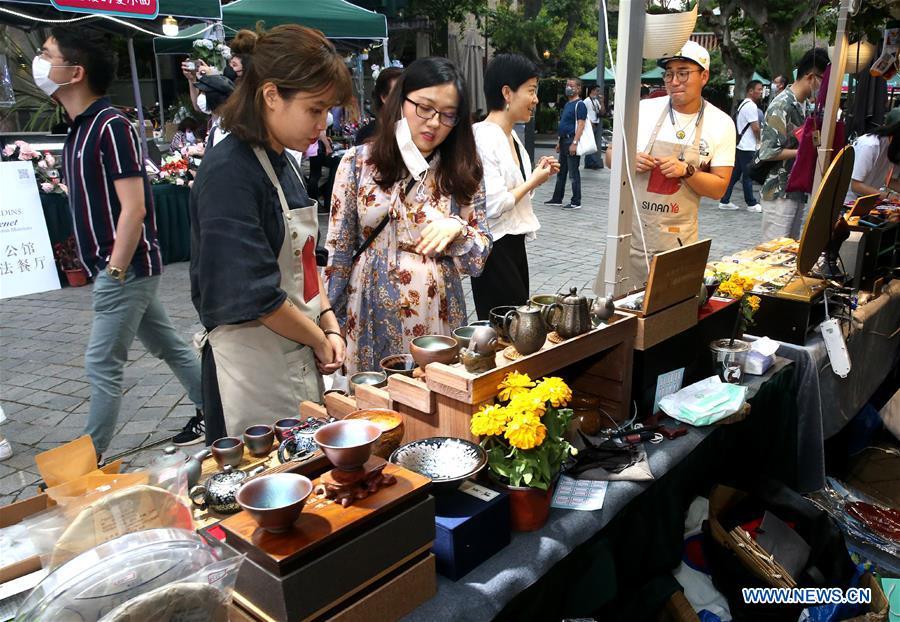Shen Guojun: Economic Recovery through Strengthening Employment and Consumption

“Private enterprises are the main providers of jobs, so we must solidify the development of private enterprises to stabilize and protect employment,” stated Shen Guojun, member of the National Committee of the Chinese People’s Political Consultative Conference and founder and chairman of Intime Group, in the interview.
The COVID-19 pandemic has greatly impacted the Chinese economy. China’s GDP fell by 6.8 percent year-on-year in the first quarter of 2020, of which the hospitality and catering sector and the wholesale and retail sector, two main employment providers in the tertiary industry, dropped by 35.3 percent and 17.2 percent, respectively.
“People only spend money when they have it.” The Chinese government has introduced a series of measures to boost consumption. Shen seeks out-of-the-box thinking and believes that only by securing employment and income can China boost consumption.
The word “employment” was mentioned 39 times in this year’s government work report, which evidences the gravity of the employment situation amid the COVID-19 impact.
“Micro, small and medium-sized businesses are the main sources for absorbing the working population,” he explained. “The tertiary industry, including retail, hospitality, housekeeping services, culture, sports, entertainment, education, delivery, warehousing, and information software, requires the lion’s share of employees in all sectors. Private enterprises such as large-scale wholesale markets, commercial complexes, commercial pedestrian streets and logistics companies are significant job creators and have been severely affected by the pandemic.” As global executive chairman of Zhejiang General Chamber of Commerce, Shen is acutely familiar with the huge pressure faced by private enterprises.
“This year’s two sessions are special,” Shen added. “Although the form is different from previous years, the responsibility of each deputy and member has not changed. The smooth development of private businesses and the stable employment of residents have a direct influence on the quality and progress of economic recovery.”
This year, Shen put forward a proposal to support the further development of private enterprises and consolidate the employment-consumption chain to promote economic recovery.
According to Shen, private enterprises, especially micro, small and medium-sized businesses, are large in number and cover a wide range of sectors. Their strong ability to provide employment makes them the major driving force in stabilizing consumption, but they are also highly susceptible to market risk. Therefore, the government should continue implementing reductions and exemption of value added tax for micro, small, and medium-sized businesses, postpone payment of business income tax, extend tax-related policies supporting epidemic prevention and control, further cut and relieve micro, small, and medium-sized businesses’ burden in terms of pension insurance, unemployment insurance, and work injury compensation insurance, and expand benefits accessible to businesses that don’t lay off workers during the epidemic. It was gratifying to see his suggestions included in the government work report.
“The enterprises need to take the initiative to improve and seek transformation,” Shen stressed. “The more difficult and complicated the situation becomes, the harder we need to work to find a way out and identify new growth drivers.” He admitted that the COVID-19 outbreak greatly impacted Intime Group. Retail and cultural tourism businesses have suffered huge losses. However, every shock is accompanied by an opportunity.
“Businesses like retail and cultural tourism should seize the development opportunities brought by new lifestyles and new consumption habits,” said Shen. In the retail sector, Intime’s shopping malls have improved sales through community marketing, live streaming, targeted advertising, enhanced service guarantees, and enriched shopping experience. In terms of cultural tourism, Intime launched “Live Streaming Cloud Tour,” through which online scenic spots were infused with cultural features to give tourists an experience with a specific scenario full of stories.
“If we actively reform and make innovations, we will find more and better development opportunities from the crisis,” Shen proclaimed. “I believe confidence is more valuable than gold. COVID-19 will eventually go away. High-quality resources are always scarce, and consumer demand will persist forever. These business constants represent development potential for companies to seize.”
